Home Solar Panels in Townsville, QLD
Solar Panels in Townsville, QLD - Cost and Rebate Guide 2025
Townsville is constantly bathed in sunlight, which is brilliant for slapping solar panels onto your roof! About 600,000 Queensland homes and businesses have made the shift to solar, accounting for 30% of all dwellings. Additionally, Townsville is home to the Ross River Solar Farm, churning out sufficient energy to supply the Sunshine Coast and beyond.
Power prices are only going to get more expensive as they have over the past couple of years, so installing solar is a great way to reduce your power bill by 80% or more. Produce your own energy and save money on your energy bills with solar PV systems.
Table of Contents
ToggleSolar panels cost in Townsville
The 5kW solar power system is the most common for most households because it provides enough energy to support the average home’s daily household needs. This solar power system costs approximately $6,005. This price includes the government rebate, which means it is already subsidized.
The average cost per kW is $1,201based on the 5kW system.
| Service/ system | Size | Cost |
|---|---|---|
| Solar cost per KW in Townsville | 1.5 kW | $3,277 |
| National average cost per KW | 1 kW | $1,892 |
| 3kW solar system cost in Townsville | 3 kW | $4,254 |
| 5kW solar system cost Townsville | 5 kW | $6,005 |
| 6.6kW solar cost Townsville | 6.6 kW | $7,332 |
Solar payback period
In Queensland, solar PV systems take approximately 3-4 years to pay for themselves, but if you finance your solar power system, you can actually become net positive immediately.
A reliable feed-in tariff from utility companies is a must to use the grid as a virtual battery of sorts to store power through the day you are not using and drawback on it at night. You will be producing your own electricity as you while enjoying amazing energy saving benefits.
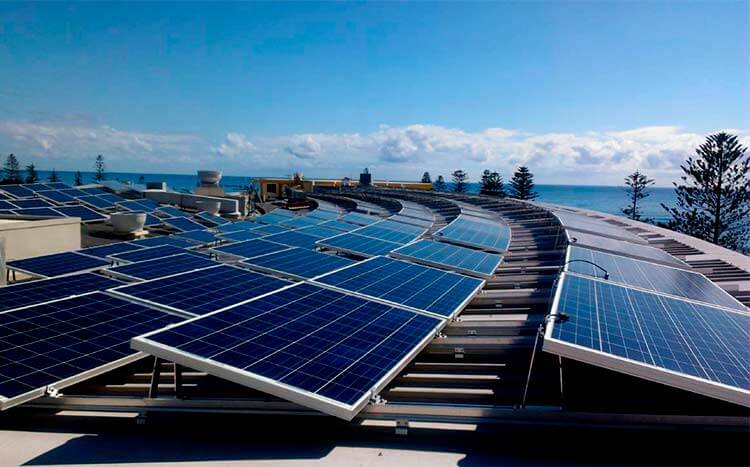
Government solar panel rebate in QLD
The solar panel rebate in Australia is a government scheme called the Small-scale Renewable Energy Scheme. It awards rebates to citizens who install solar panels to reduce energy costs.
If you live in QLD, Australia, you will get a government rebate for installing solar power system. The rebates vary depending on your STC zone and the size of the system you install. The bigger the system, the higher the rebate amount.
The QLD state rebates depend on the number of STCs you get for your solar PV system. The larger the system, the more the STCs you get. The STC price has been moving between $35 and $40 for several years now. So, for an average 5kW solar system, you will get 48 STCs, which gives you a rebate of $1,915.
| System Size | Rebate Amount |
|---|---|
| 2kW | $758 |
| 3kW | $1,157 |
| 4kW | $1,516 |
| 5kW | $1,915 |
| 6kW | $2,314 |
| 10kW | $3,870 |
QLD Government State Rebates
Queensland provides a number of solar rebates to its residents. The rebates differ depending on the size. The larger the system, the higher the rebate.
All Queenslanders are encouraged by the state to apply for interest-free loans for solar as well as solar storage provided by the government. The loans enable people to buy solar power systems without spending a lot of money in the initial installation stage.
Rebate background: The government rebate is an initiative by Australia’s government that aims to provide affordable solar energy to all the citizens going for solar installation. This initiative is known as the Small-scale Renewable Energy Scheme. The government awards people differently depending on the number of STCs your system gets in the region or zone you live in.
| Solar System Output | Number of STCs Awarded |
|---|---|
| 1.5Kw | 14 |
| 3Kw | 29 |
| 5Kw | 48 |
| 6Kw | 58 |
| 6.6Kw | 64 |
| 7Kw | 68 |
| 10Kw | 97 |
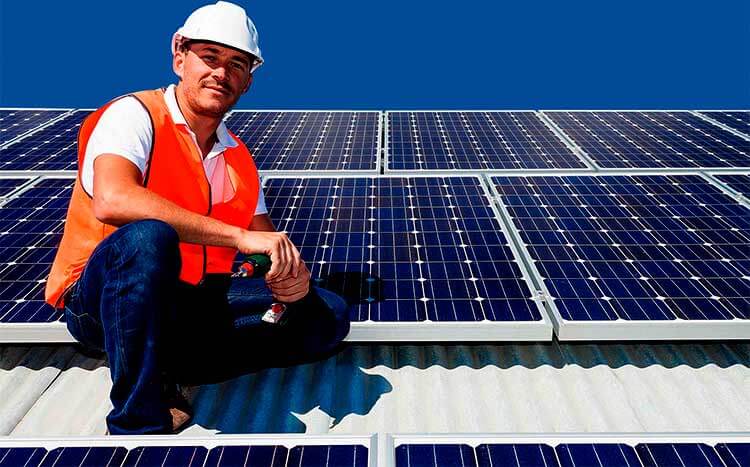
Solar system output in Townsville QLD
Below is a simple illustration of the power output for different solar system sizes. If you know your system’s output, you can easily calculate your rebate using the STCs.
| System Size | Output |
|---|---|
| 1kW | 4.3kWh |
| 1.5kW | 6.45 kWh |
| 2kW | 8.6 kWh |
| 3kW | 12.9 kWh |
| 4kW | 17.2 kWh |
| 5kW | 21.5 kWh |
| 6kW | 25.24 kWh |
| 10kW | 38.5kWh |
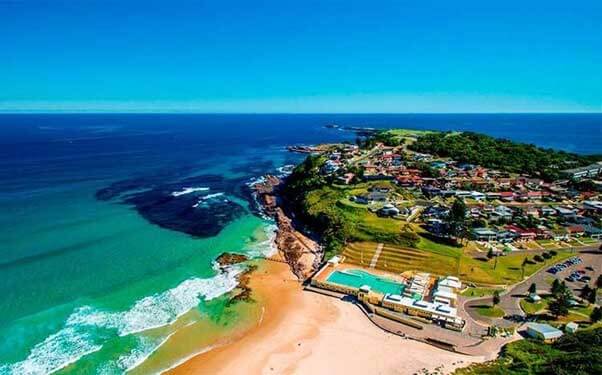
STC zone in Townsville QLD
A larger part of QLD is in zone 1, so is Townsville. This means that this zone receives more sunlight than VIC for example, which is in zone 3. QLD receives an STC rate of 1. 622 and awards the QLD homeowners depending on the size of the solar system they have installed.
Solar Feed-in tariffs QLD
Besides the discounts from the government rebates, you can receive money from local energy providers who offer you money for every kW of power you feedback into the grid.
This feed-in tariff offered by QLD utility companies allows you to trade in the extra power you generate from your system for money. You can receive a specific amount for your watts, depending on the company. Some companies can offer up to 44c per watt, which is a promising figure, and it helps reduce your system’s payback time.
Below are some of the best companies to work with.
Best Overall
| Min FiT | Max FiT |
|---|---|
| 8.5c | 44c |
Dodo offers you a minimum feed-in tariff of 8.5c, but it can go up to 44.0c depending on the size of your system.
Although they still state they have 44.0c feed-in tariff, it’s doubtful anyone actually ticks all the boxes to make be eligible. That being said, I have found them to be the best overall with their rates and terms in the state.
Runner up
| Min FiT | Max FiT |
|---|---|
| 15.0c | 59.0c |
Red energy is also an excellent choice for your power. It offers 15.0c on the minimum and a maximum of 15.0c. It was hard to pick between Dodo and Red energy, I just found the customer service to be quicker and friendlier.
Red energy does give a high minimum Fit which is a great feature.
Great All-rounder

| Min FiT | Max FiT |
|---|---|
| 12.0c | 56.0c |
Another great FiT provider is Click Energy that gives you 8.0c per kWh on the minimum and a maximum of 10.0c. Your earnings depend on the size of solar you have.
There are a lot of companies out there, that do a great job, and we tried to find 3 with a good balance of price, Fit and customer service. Click energy ticked all those boxes and deserves the 3rd place crown.
Is Townsville a good climate for solar?
Townsville, often seen as the unofficial capital of North Queensland, as the is in zone 1 in Australia, which means it receives a fair amount of sunshine. It is, therefore, a good climate for solar energy. Australia is generally sunny all year round, making it a good climate for solar power installation. Even the coldest regions can support solar power as long as the panels receive sunshine during the day.
Percentage of Townsville households with solar installed
Approximately 24% of homes in Townsville have solar energy, according to the PV institute. That’s a whopping 25,000 installations as of May 2021. This figure is rising steadily with more homes look to cut their energy bills by installing solar energy. This rise is due to the government rebates and feed-in tariffs from reliable utility companies. The emergence of new sustainable models, of panels and solar battery storage systems, means more and more home owners in sunny Townsville will enjoy massive energy savings for many years to come.
Optimal solar panel orientation and angle in Townsville
The optimal solar PV system orientation is North and about 28 degrees. Most roofs in Townsville are inclined to this angle. The panels are usually just bolted to rails on the roof and that will suffice. A flat roof will need the angle of the panel changed
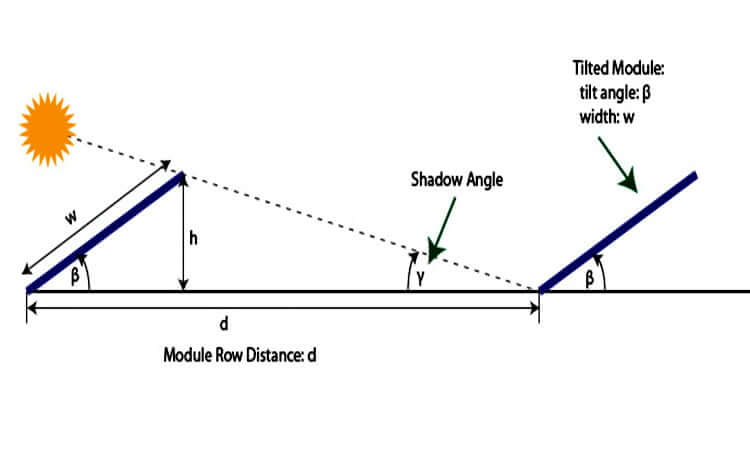
FAQs
Can I get free solar panels?
Yes, you can get free solar PV systems from a low-income household. NSW enables all eligible low-income homes to access affordable solar power by providing free solar systems. These systems cut electricity bills by approximately $600 every year. To qualify for the free solar power systems, you must meet the minimum requirements set by the government.
Who is the best solar installer?
There are several reliable and best solar installers, but the most outstanding ones include Regen Power, Supreme Solar Power, and Solarhub. All these companies offer outstanding solar power solutions for all households, businesses, and industries. Request a free quote from any one of them and start this great investment to generate clean power.
Do I need battery storage?
Yes, you need batteries to store renewable energy that can quickly be released into the grid when needed. The power stored in batteries is also essential when your home’s energy demand rises. Batteries are, therefore, an essential addition to solar panels.
Will I eliminate my power bill?
Although you cannot completely eliminate your power bill by installing solar power, you can save a lot on your monthly electricity bills. Depending on your household needs and the size of solar you are using, you can reduce the power bills until they are no longer a bother for your monthly budget.
How many solar panels do I need?
The number of solar panels you need depends on your household energy requirements per hour. You can calculate the number of panels you need by multiplying your daily hourly needs and the peak sunlight hours in your area. You should divide the figure you get by the wattage of the panel.
Which way do solar panels face in Townsville?
Solar panels in Townsville should face the Northern direction. The best angle range is about 19 to 29 degrees. The optimal range is 24 degrees to make sure the panels receive a high amount of sunlight.
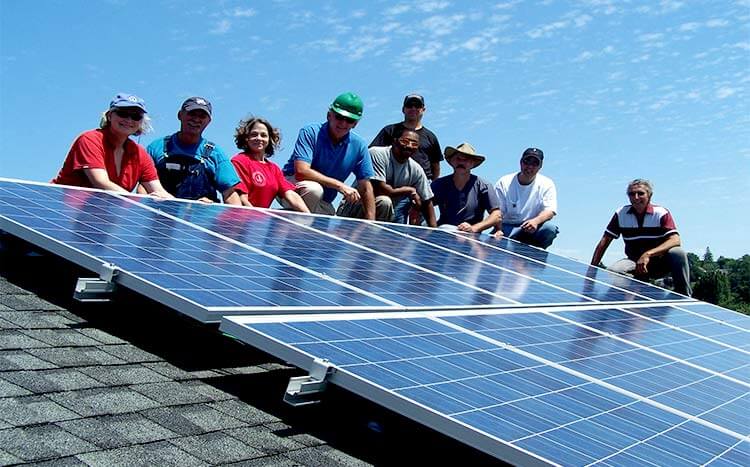
Compare Solar Panel Quotes
Table of Contents
Toggle









